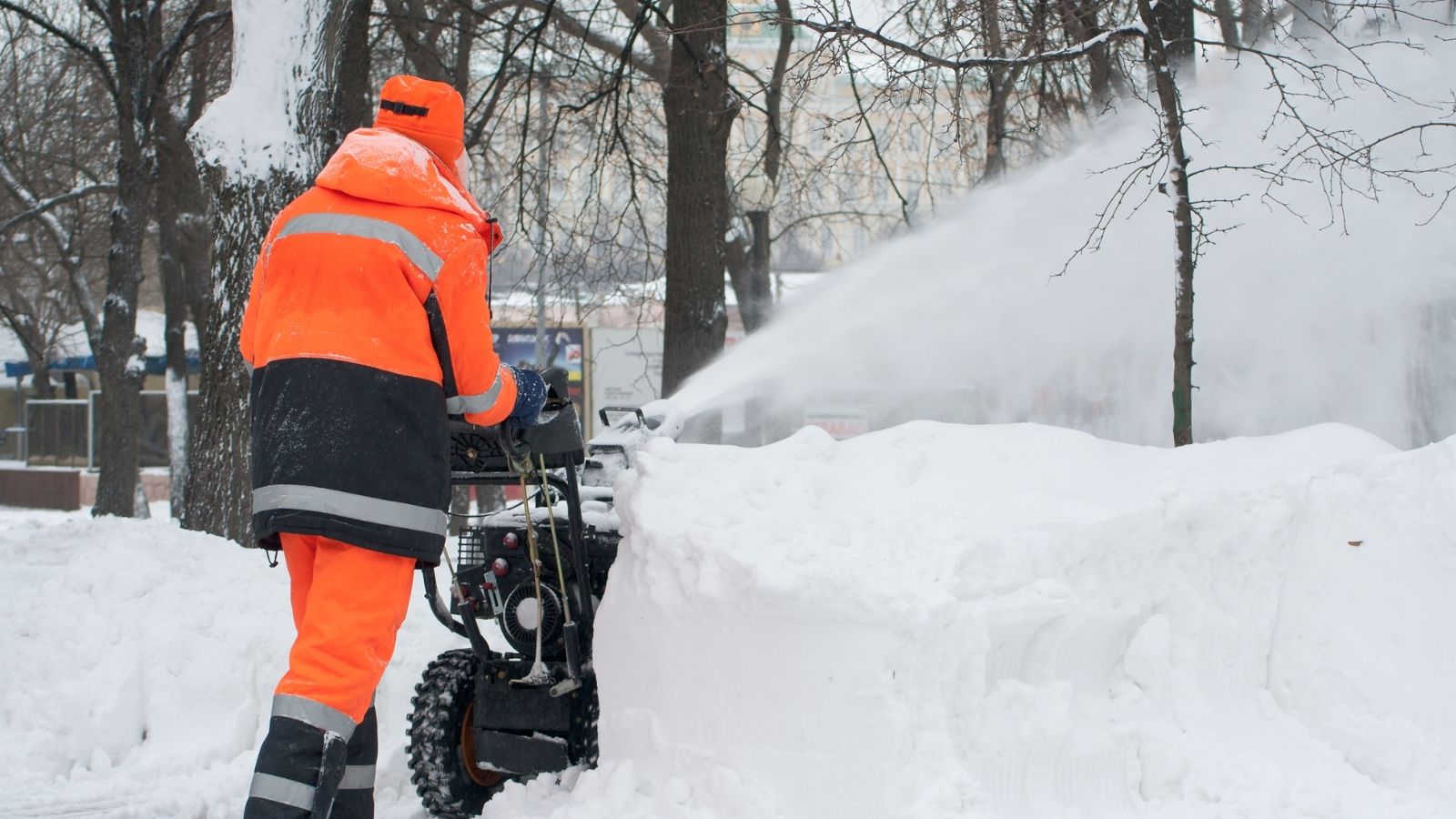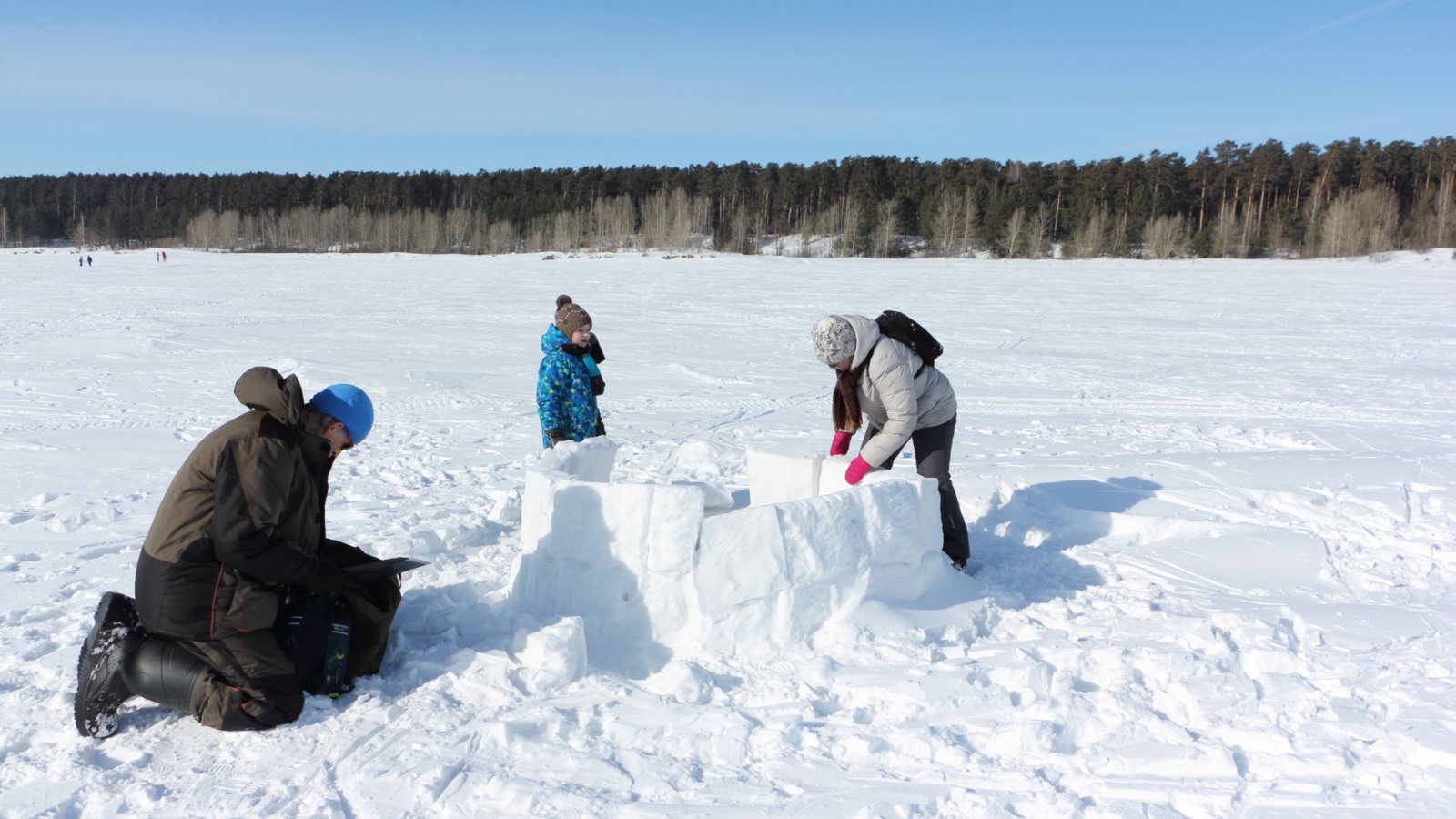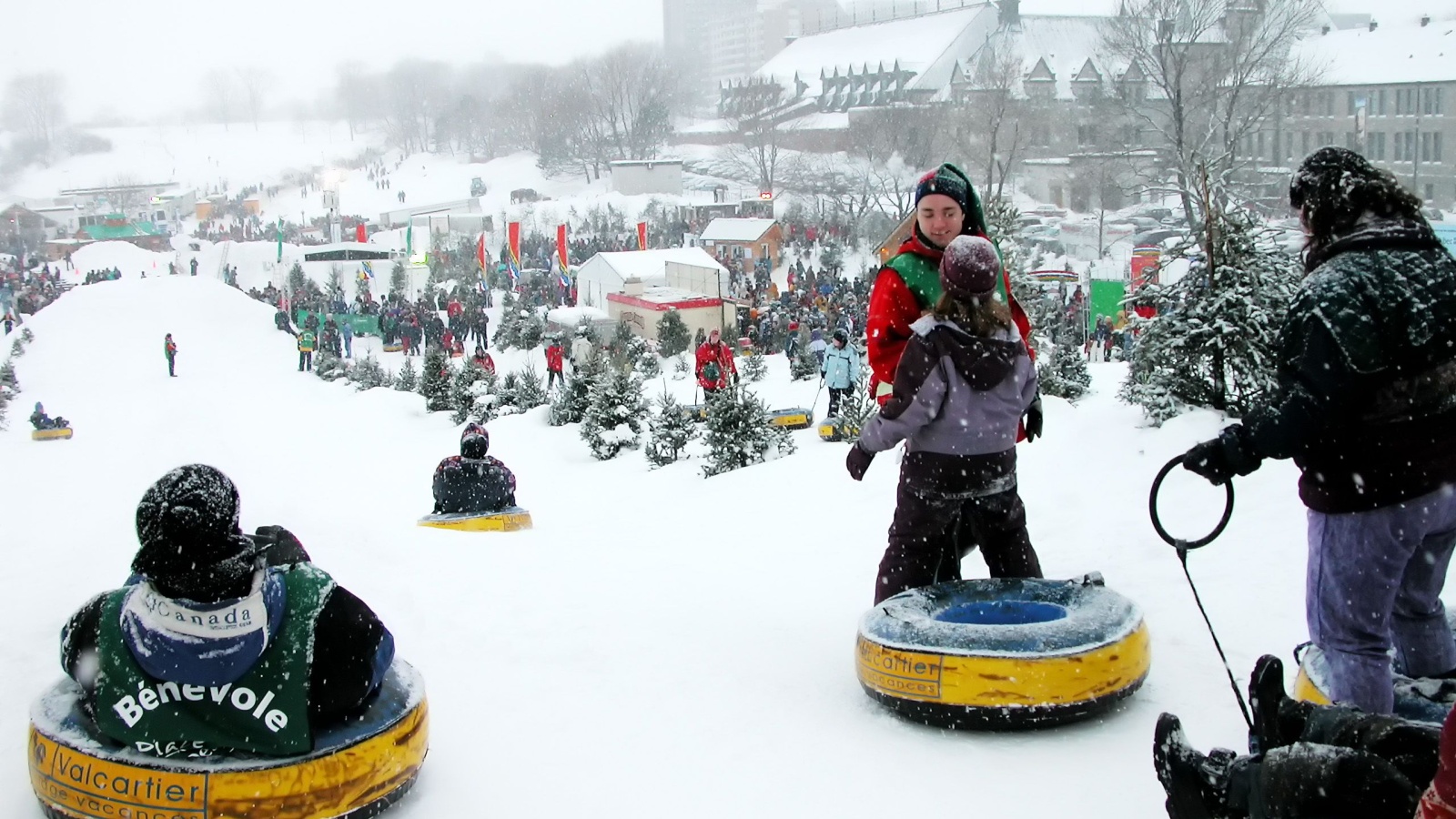Canadian winters shape resilience in ways that feel subtle at first but reveal their power over time. The season demands patience, adaptability, preparation, and steady confidence through long stretches of cold and darkness. These habits become ingrained, forming a type of everyday toughness that money can’t manufacture. Here are 23 ways our winters built grit you can’t buy.
Navigating Extreme Cold Without Hesitation

Canadian winters routinely deliver temperatures that require careful planning just to leave the house. Learning to manage minus double-digit conditions builds practical resilience, familiarizing people with dressing in layers, monitoring exposure, and functioning in environments many would avoid entirely. Whether commuting, shovelling, or running errands, Canadians adapt quickly to temperature swings that others might consider extreme. This sense of normalcy around severe cold teaches discipline and steady focus. Over time, navigating subzero weather without hesitation strengthens confidence, showing that discomfort doesn’t have to stop daily routines. It fosters an almost instinctive ability to face difficult conditions calmly and consistently.
Driving Safely on Snow and Ice

Winter driving demands patience, concentration, and continuous adjustment. Canadians learn to steer gently, brake early, handle reduced visibility, and anticipate the unpredictability of icy roads. Mastering winter driving conditions requires calm decision-making under pressure, a skill that carries over into other aspects of life. People must leave earlier, plan routes carefully, and remain alert even on familiar roads. Winter commuting reinforces self-control and teaches that responsibility often means preparing for conditions beyond one’s control. This ability to stay composed during challenging circumstances builds emotional resilience and confidence that develops only through repeated experience.
Managing Unexpected Storm Disruptions

Blizzards, freezing rain, and sudden temperature drops can alter daily plans without warning. Canadians learn to adapt quickly, adjusting schedules, rescheduling commitments, and prioritizing safety. Dealing with unpredictable weather builds flexibility and reinforces the importance of preparation. Storms often interrupt travel, power, and routines, teaching people to stay calm and resourceful when circumstances shift rapidly. This seasonal unpredictability encourages planning but also requires the ability to pivot gracefully. Over time, these repeated adjustments cultivate a mindset of adaptability — a type of grit built through experience rather than intention.
Shovelling Snow as a Regular Responsibility

Snow removal is both a physical task and a mental one. Canadians often spend hours clearing driveways, sidewalks, and cars, sometimes multiple times in a single day. The work requires perseverance, especially when heavy, wet snow piles up during storms. It teaches patience, pacing, and commitment to maintaining safe pathways. Shovelling also promotes community responsibility as people clear public areas and help neighbours who need assistance. The repetitive nature of the task reinforces discipline and the willingness to push through fatigue. These habits contribute to resilience built through consistency rather than convenience.
Waking Up Earlier to Prepare for Winter Conditions

Winter mornings demand extra time for warming vehicles, brushing off snow, scraping ice, and navigating slow-moving traffic. Canadians naturally adjust by waking earlier and building additional buffers into their routines. This discipline sharpens time-management skills and reduces stress by encouraging thoughtful planning. The habit of anticipating obstacles, rather than reacting to them, becomes second nature. Over time, this daily practice teaches accountability and reliability. The willingness to sacrifice comfort for preparation builds a quiet form of grit that becomes useful in both personal and professional environments.
Maintaining Social Commitments Despite the Weather

Canadian winter rarely offers ideal conditions for social activities, yet people continue to attend gatherings, meet friends, and participate in community events. Keeping commitments despite cold temperatures or snowstorms builds perseverance and reinforces dependability. Canadians learn to evaluate risks and prepare accordingly rather than cancelling plans at the first inconvenience. This persistence fosters emotional strength, encouraging individuals to push through discomfort to support relationships and community engagement. The determination to stay active and connected during winter helps build resilience that extends beyond seasonal challenges.
Managing Energy Use and Household Efficiency

Winter requires Canadians to pay close attention to heating, insulation, and energy consumption. Adjusting thermostats, sealing drafts, and optimizing household systems teaches practical resourcefulness. Many households juggle increased energy costs while maintaining comfort, leading to careful budgeting and strategic planning. The need to manage limited resources fosters financial discipline and problem-solving skills. Winter also highlights the importance of responsibility in maintaining a safe and warm home environment. These habits develop into long-term resilience in managing both unexpected expenses and ongoing obligations.
Dressing Strategically for Long, Harsh Seasons

Canadian winter clothing requires thoughtful layering, reliable outerwear, and seasonal organization. People learn to balance warmth, mobility, and safety, selecting gear appropriate for varying conditions. This daily decision-making builds practical awareness and attention to detail. Taking the time to dress properly reinforces patience and reduces the likelihood of avoidable discomfort. Over time, the habit of preparing thoroughly for the outdoors translates into other areas of life, supporting a mindset that values readiness and adaptability. Winter attire becomes more than clothing — it reflects an approach to overcoming environmental challenges with intention.
Keeping a Positive Routine Despite Limited Daylight

Short winter days test emotional resilience, requiring people to maintain energy, productivity, and wellbeing despite reduced sunlight. Canadians often combat seasonal fatigue by prioritizing routines, outdoor exposure when possible, and consistent sleep schedules. This commitment to stability teaches mental discipline and self-awareness. Recognizing the impact of limited daylight and taking proactive steps to manage mood demonstrates maturity and emotional grit. These habits strengthen long-term coping skills that remain valuable throughout the year, especially during periods of stress or uncertainty.
Supporting Neighbours During Harsh Conditions

Winter encourages strong community bonds as people help one another with snow removal, transportation, supplies, or simple welfare checks during storms. Canadians often step in without being asked, reflecting a culture of collective resilience. This mutual support reinforces empathy, responsibility, and shared strength. Helping neighbours becomes a natural part of winter, and the habit of offering assistance creates a form of social grit that strengthens communities. These experiences teach that resilience is not only individual but also communal, built through cooperation and consistent acts of kindness.
Navigating Public Transit in Challenging Conditions

Winter transit requires patience and adaptability as delays, detours, and crowded vehicles become common. Canadians learn to adjust expectations and remain composed despite unpredictable schedules. Waiting outside in cold temperatures, boarding slowly due to ice, and sharing limited space all contribute to developing tolerance and emotional endurance. The ability to handle inconvenience without frustration reflects a deep, hard-earned resilience. Over time, navigating winter transit builds grit rooted in composure, understanding, and steady persistence through everyday challenges.
Continuing Outdoor Activities Despite the Cold

Rather than retreat indoors for months, Canadians continue outdoor activities such as skating, skiing, snowshoeing, and winter hiking. Participating in these activities teaches physical resilience and mental commitment, especially when temperatures drop or conditions fluctuate. The willingness to embrace the season instead of avoiding it demonstrates adaptability and confidence. Winter recreation also requires preparation, safety awareness, and consistent practice, reinforcing self-discipline. Engaging actively with the outdoors strengthens grit through exposure to elements that challenge both body and mindset.
Handling Power Outages Calmly and Competently

Winter storms occasionally disrupt electrical service, requiring Canadians to rely on backup plans, emergency kits, and steady composure. Managing a power outage in freezing temperatures demands practical thinking: conserving heat, using safe light sources, preparing food without appliances, and staying informed. These moments teach resourcefulness and reinforce the importance of readiness. Households often support neighbours, share supplies, and check in on vulnerable community members. Navigating these situations without panic builds confidence in one’s ability to stay calm under pressure. Over time, the experience of managing outages strengthens a form of everyday resilience that extends beyond seasonal challenges.
Keeping Children Engaged During Long Indoor Stretches

Extended winter weather keeps families indoors for long periods, requiring creativity, structure, and patience. Parents and caregivers develop strategies to maintain engagement through activities, learning tasks, and play despite limited outdoor time. This process encourages flexibility and emotional resilience for both adults and children. Managing energy, boredom, and routine disruptions teaches families to adapt together. The ability to create stability and positivity during long stretches indoors builds collective grit and strengthens problem-solving skills. These habits often carry into other seasons and situations where adaptation is required.
Maintaining Physical Activity When It’s Tempting to Slow Down

Winter reduces daylight, lowers motivation, and creates physical barriers to staying active. Canadians often push through these obstacles by committing to indoor workouts, winter sports, or daily walks regardless of temperature. This persistence teaches discipline and reinforces the idea that consistency matters even when conditions are far from ideal. Staying active in winter requires planning, mental effort, and determination. Over time, the commitment to maintaining movement develops self-control and resilience — qualities that extend well beyond fitness.
Adjusting Meal Planning for Winter Conditions

Winter influences what foods are available, affordable, and practical. Canadians learn to adapt by relying on pantry staples, frozen produce, and batch cooking. Meal planning during the colder months builds resourcefulness, as people stretch ingredients, reduce waste, and prepare dishes that last. This approach encourages forethought and organization, especially when storms or supply issues limit options. The habit of planning meals in advance fosters discipline and supports long-term resilience. Winter cooking becomes more than nourishment — it becomes a lesson in efficiency, creativity, and preparation that carries over into broader daily life.
Travelling Long Distances Despite Difficult Conditions

Many Canadians regularly travel across snowy highways, remote roads, and winter-affected routes to visit family, attend work, or reach essential services. These journeys require preparation, patience, and situational awareness. Drivers learn to monitor weather alerts, pack emergency supplies, and adjust speed to maintain safety. Completing long trips despite challenging conditions builds confidence and teaches steady decision-making. The willingness to continue travelling responsibly through winter reflects a form of grit forged by necessity. These experiences develop calmness under pressure and a practical understanding of risk management.
Managing Seasonal Isolation in Remote Areas

Northern and rural regions experience longer periods of isolation during winter, requiring residents to cultivate emotional resilience and strong self-reliance. Limited daylight, reduced travel options, and smaller social circles make personal routine and mental steadiness essential. Canadians in remote communities learn to create structure, maintain connections, and prioritize wellbeing through difficult stretches. These conditions demand patience and adaptability, reinforcing a deep internal strength. This seasonal isolation teaches self-management skills that remain valuable throughout the year, contributing to a unique form of grit rooted in solitude and perseverance.
Preparing Homes for Harsh Weather Months

Winter readiness involves tasks such as insulating pipes, sealing windows, servicing heating systems, and organizing emergency supplies. Canadians develop a practical mindset around preventive maintenance, understanding that careful preparation reduces stress during severe conditions. These responsibilities teach foresight, discipline, and problem-solving. The routine of winter preparation reinforces the importance of taking responsibility before issues arise. This proactive approach embodies a type of grit shaped by vigilance and consistency. Individuals learn to handle potential challenges by addressing them early, rather than reacting under pressure.
Staying Socially Connected Despite Harsh Weather

Maintaining relationships during winter requires extra effort, especially when travel is difficult and outdoor socializing is limited. Canadians often initiate check-ins, plan indoor gatherings, or use digital communication to stay connected. These actions strengthen emotional resilience and protect against seasonal stress. Staying socially engaged despite environmental obstacles demonstrates commitment to community and relationships. This habit teaches persistence and reinforces the idea that meaningful connection requires active participation. By prioritizing social ties during winter, Canadians develop a type of relational grit that supports overall wellbeing.
Adapting Work and Study Routines to Winter Challenges

The winter season often disrupts normal productivity patterns. Canadians adjust by modifying routines, planning ahead, and creating structured environments that support focus despite weather-related inconveniences. This includes preparing supplies, anticipating delays, and maintaining discipline during darker, colder days. The ability to adapt work and study habits teaches responsibility and resilience. Over time, the practice of staying consistent through seasonal challenges builds mental toughness and enhances long-term performance. Winter becomes a training ground for self-management and steady progress.
Developing Patience Through Long Seasonal Transitions

Winter’s slow arrival and even slower departure teach patience and acceptance. Canadians become accustomed to fluctuating temperatures, late-season storms, and unpredictable thaws. These transitions develop emotional steadiness and reduce frustration, reinforcing the understanding that certain conditions can’t be rushed. This patience extends into other aspects of life, becoming a quiet form of grit. Learning to accept seasonal uncertainty builds perspective and strengthens the ability to stay calm during prolonged challenges. It’s a skill that grows gradually, shaped by every long winter.
Building Mental Resilience Through Collective Experience

Winter fosters a sense of shared endurance, strengthening both individual and community resilience. Canadians collectively navigate cold snaps, storms, short days, and daily inconveniences, creating an environment where perseverance becomes the norm. This collective effort reinforces that challenges are manageable when faced with preparation and mutual support. Over time, shared winter experiences shape an inner toughness strengthened by community strength, routine, and patience. This form of grit is unique because it’s built not just individually, but through cultural habits that make resilience a shared identity.
21 Products Canadians Should Stockpile Before Tariffs Hit

If trade tensions escalate between Canada and the U.S., everyday essentials can suddenly disappear or skyrocket in price. Products like pantry basics and tech must-haves that depend on are deeply tied to cross-border supply chains and are likely to face various kinds of disruptions
21 Products Canadians Should Stockpile Before Tariffs Hit
